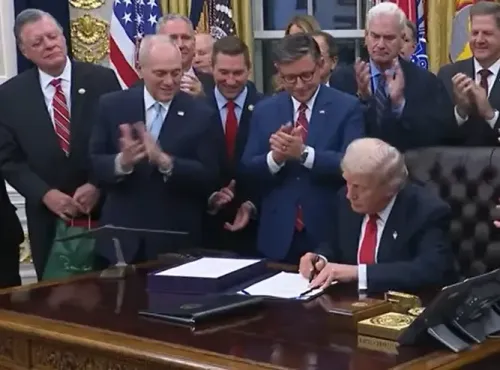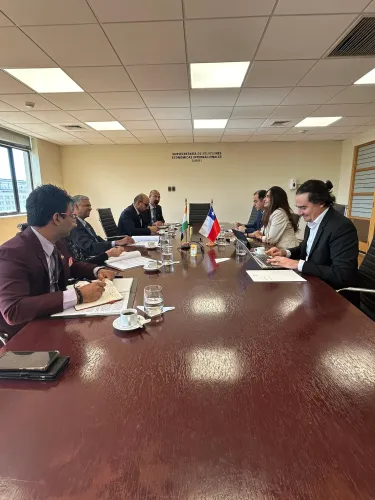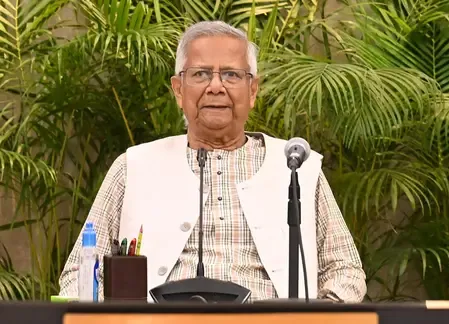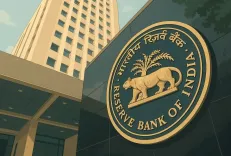Why is North Korea Rebuffing Lee's Efforts for Dialogue?

Synopsis
Key Takeaways
- North Korea firmly rejects South Korea's dialogue efforts.
- Kim Yo-Jong emphasizes a hardened stance on inter-Korean relations.
- The Lee administration aims to improve ties through restraint in propaganda.
- Upcoming military exercises could escalate tensions further.
- Future relations remain unclear amidst ongoing diplomatic challenges.
Seoul, July 28 (NationPress) On Monday, North Korea firmly turned down the overtures made by South Korea's new liberal administration under Lee Jae Myung, aimed at rekindling dialogue and enhancing bilateral relations. This rejection casts a shadow over Seoul's aspirations to alleviate tensions and foster peace through engagement.
Kim Yo-Jong, the influential sister of North Korean leader Kim Jong-un, accused President Lee's administration of "blindly adhering" to the South Korea-US alliance and declared that Pyongyang has no intention of engaging in discussions with Seoul.
"Let me reiterate that we have no interest in any policy or proposal from Seoul, and there will be no opportunity for us to meet with South Korea for talks," she stated, marking the North's first official response to the Lee government.
"In observing the past 50 days since Lee Jae Myung took office, it is evident that he is not different from his predecessor, continuing the blind allegiance to the South Korea-US alliance and pursuing a confrontational approach towards us," Kim remarked.
Since his inauguration last month, the Lee administration has halted military and intelligence agency-operated propaganda broadcasts directed at North Korea and has urged civic groups to cease the distribution of propaganda leaflets, as part of its effort to repair strained relations and reopen dialogue, according to Yonhap news agency.
Throughout his campaign and initial months in office, Lee has committed to pursuing dialogue with Pyongyang as a means to diminish military tensions and secure peace on the Korean Peninsula.
However, Kim dismissed the halt of propaganda broadcasts as "nothing but a reversible step backward of actions they should not have undertaken in the first place," deeming it unworthy of acknowledgment.
"Regardless of how fervently the Lee Jae Myung government may strive, there will be no alteration in our state's perception of the enemy, and they cannot reverse the historical changes that have fundamentally altered the nature of DRPK-ROK relations," Kim asserted.
In her remarks, she also dismissed South Korea's potential invitation for Kim Jong-un to attend the Asia-Pacific Economic Cooperation summit in Gyeongju in October as a "ridiculous delusion."
Kim warned that South Korea would be marred by the consequences of aggressive joint military maneuvers, stating that the US and ROK would attempt to pass the blame for the deteriorating situation onto North Korea.
North Korea's statement effectively dampens Lee's attempts for reconciliation and dialogue, signifying the regime's evolving perspective of viewing South Korea as a distinct nation and distancing itself from the goal of unification.
After announcing in late 2023 that the two Koreas are separate "hostile" nations, the North has been dismantling inter-Korean concepts like unification and ceasing broadcasts aimed at the South.
Experts argue it is premature to ascertain North Korea's genuine intentions.
Yang Moo-jin, President of the University of North Korean Studies in Seoul, pointed out Kim's frustrations regarding South Korea-US joint military drills, suggesting it may be a call for Seoul to scale down or delay the large-scale Ulchi Freedom Shield exercise set to commence in mid-August.
"North Korea has highlighted the South Korea-US alliance as the foundation for its assertion that the Lee administration mirrors its predecessor while using joint military exercises as a symbol of confrontation," Yang explained.
"The upcoming joint South Korea-US exercise could be a pivotal moment for inter-Korean relations," he added.
The office of Lee and the unification ministry confirmed that Seoul will persistently work towards reconciliation and cooperation with North Korea.
"The recent statement indicates that the North Korean regime is attentively observing the trajectory of the Lee government's North Korea policy," stated unification ministry spokesperson Koo Byoung-sam.
"The government will remain steadfast in responding to North Korea's reactions, maintaining a calm and consistent approach to fostering inter-Korean reconciliation and cooperation, ultimately aiming for mutual peace on the Korean Peninsula."
int/bpd/as









